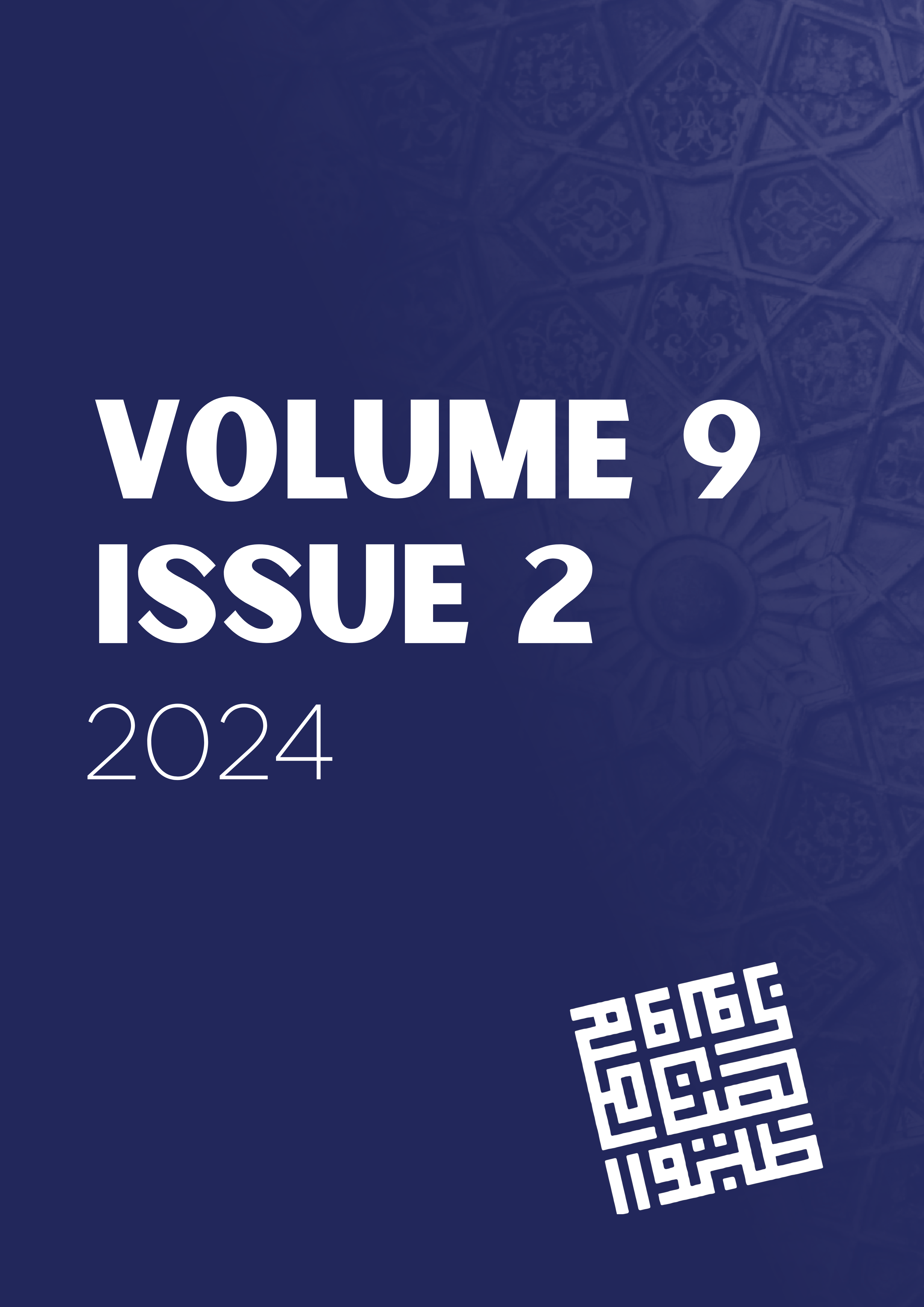The Role of Reason in Establishing Civilization: Insights from Classical Muslim Perspectives

Abstract
The role of reason in initiating and maintaining civilisation, as elucidated by Abū al-Ḥasan al-Māwardī (d. 1058), is pivotal, serving as the faculty for distinguishing good from bad and guiding behaviour. Al-Māwardī divides reason into two stages: natural and acquired. This understanding of reason is shared by other scholars, such as al-Muḥāsibī (d. 857) and Ibn abi al-Dunyā (d. 894). Hawá or desire is seen as antithesis to reason, serving as a manifestation of ethical corruption and instigating perpetual conflict. To build any society, reason takes a central role at individual and societal levels. This article argues that there are no possibilities for a civilisation to be constituted and maintained without a central role for reason. This article analyses al- Māwardi’s conception of reason in relation to civilisation. Al-Māwardī contends that reason not only serves as the cornerstone for societal development, but also facilitates understanding of religion, an essential aspect in his ideology. This article concludes that deep understanding of reason’s role in civilisation provides an appropriate direction for understanding civilisation and how reason can enhance and improve people’s decent conduct and manners.
Keywords
Al-Māwardī, Reason, Civilisation, Ethics, Islamic thought, Ibn Abi al-Dunyā, al-Muḥāsibī, Islamic civilisation
References
- Al-Baghdādī, Aḥmad Mubārak. “The Political Thought of Abu Al-Hassan Al-Mawardi.” PhD diss., University of Edinburgh, 1981.
- Alboǧa, Bekir. Lehranalytische Betrachtung bei Abū al-Ḥasan al-Māwardī (974-1058): Oberster Richter des 4./10. Jahrhunderts im Islamischen Kalifat der Abbasiden; sein Leben und seine Gedankenwelt [Teaching-Analytical Examination in the Case of Abu al Hasan al Mawardi: Chief Judge of the 4th/10th Century in the Islamic Caliphate of the Abbasids; his Life and his World of Thought]. Köln: Divanverlag, 2014.
- Al-Faruqi, Ismaʼil R. Al Tawhīd: Its Implications on Thought and Life. Herndon: International Institute of Islamic Thought, 1992.
- Al-Iṣfahāni, Al-Rāg̲ h̲ ib. Al-Dharī ʿah ʾlā Makārim al-Sharīʿah [The Book of Means to the Noble Qualities of the Law]. Edited by Abu al-Yazid abu Zied al-Ajami. Cairo: Dār al- Salām, 2010.
- Al-Iṣfahāni, Al-Rāg̲ h̲ ib. Al-Mufradāt fī Gharīb al-Qur’ān [The Dictionary of Odd Words of the Qur’ān]. Edited by Muhamad Khaliel Ghitanie. Beirut: Dār al-Ma ʿārifah, 2010.
- Ibn al-Jawzī. Dhamm al-Hawā [In Lambasting Caprice]. Edited by Khaled Abdul Latif Al- Sabe AlAlami. Beirut: Dār al-Kitāb al-ʻArabī, 1998.
- Al-Kawakibi, Abdul Rahman. The Nature of Tyranny: And the Devastating Results of Oppression. Translated by Amer Chaikhouni. Oxford University Press, 2022.
- Al-Mālaqī, Ibn Raḍwān. al-Shuhub al-Lāmiʻah fī al-Siyāsah al-Nāfiʻah [The Glittering Stars in Beneficial Politics]. Edited by ʻAlī Sāmī al-Nashshār. Cairo: Dār al-Salām, 2007.
- Al-Māwardī, Abū al-Ḥasan. Aʿlâm al-Nubuwwa [Signs of Prophethood]. Beirut: Dar al-Nafa’is lil Nashr wa al-Tawzi’, 1994.
- Al-Māwardī, Abū al-Ḥasan. Al-Nukat wal-ʿUyūn: Tafsīr al-Māwardī [Al-Māwardī’s Commentary on the Qur’ān]. Edited by Abdul Maqsoud bin Abdul Rahman. Beirut: Dār al- Kutub al-ʿIlmiyya, 2007.
- Al-Māwardī, Abū al-Ḥasan. Kitāb ʾĀdāb al-Dunyā wal-Dīn [The Book on the Ethics of Faith and Life]. Edited by Jasin al-Sawas. Beirut: Dār ibn Kathīr, 2012.
- Al-Māwardī, Abū al-Ḥasan. Tasʹhīl al-Naẓar wa-taʻjīl al-Ẓafar fī Akhlāq al-Malik wa Siyāsat al Mulk [A Facilitated Consideration and Accelerated Attainment of Kings’ Good Ethics and Kingdoms’ Policies]. Edited by Ridwan Al-Sayyid. Beirut: Ibn Al Azraq Center for Political Heritage Studies, 2012.
- Al-Muḥāsibī, al-Ḥārith. Al-ʿAql wa-Fahm al-Qur’ān [The Mind and Understanding the Qur’ān]. Edited by Husayn AlQuwwatli. Beirut: Dār al-Fikr, 1971.
- Al-Nāhī, Ṣalāḥ al-Dīn. Al-Khawālid min ʾārāʾAbī al-Ḥasan al-Baṣrī alBaghdādī al-ma’rūf bi- al-Māwardī [The Significant Views of Abū al-Ḥasan al-Baṣrī alBaghdādī, known as al- Māwardī]. Beirut: Dār al-Jīl, 1994.
- Al-Ṭurṭūshī, Abū Bakr. Sirāj al-Mulūk [Lamp of Kings]. Beirut: Dar al-Minhaj, 2016.
- Elias, Norbert. Über den Prozess der Zivilisation. Soziogenetische und psychogenetische Untersuchungen Wandlungen des Verhaltens in den weltlichen Oberschichten des Abendlandes [On Civilizing Processes: Sociogenetic and Psychogenetic Investigations of Changes in Behavior in the Secular Upper Classes of the West]. Vol. 1. Amsterdam: Suhrkamp Taschenbuch Verlag, 1997.
- Freud, Sigmund. Civilization and its Discontents. Translated by David McLintock. London: Penguin Books, 2002.
- Guizot, François. History of Civilization in Europe. Translated by William Hazlitt. Indianapolis: Liberty Fund Inc, 2013.
- Ibn Abi al-Dunyā, ʿAbdullah ibn Muḥammad. Kitāb al-’Aql wa-Faḍluhū [The Book on the Mind and its Merit]. Edited by Majdi al-Sayed Ibrahim. Cairo: Maktabat al-Qur’ān, 1988.
- Ibn K̲ h̲ aldūn, ʻAbd al-Raḥmān. Al-Muqaddimah [The Prolegomena]. Edited by ʻAlī ʻabd alWāḥid Wāfī. Vol. 3. Cairo: Nahḍat Miṣr, 1981.
- Khānʹzādah, ʾUways Wafā ibn Muḥammad. Minhāj al-Yaqīn: Sharḥ ʾĀdāb Aldunyā wal-Dīn [The Truthful Way: An Elaboration of the Ethics of Faith and Life]. Istanbul: Mahmūd Bey Maṭbaʼāsi, 1910.
- Khānʹzādah, ʾUways Wafā ibn Muḥammad. Minhāj al-Yaqīn: Sharḥ Ādāb al-Dunyā wa-al- Dīn [The Truthful Way: An Elaboration of the Ethics of Faith and Life]. Edited by Muhammad alAzzazi. Vol. 1. Beirut: Dar Al-Kotob Al-’Ilm’yah, 2019.
- Schweitzer, Albert. The Philosophy of Civilization. Translated by C. T. Campion. Amherst and New York: Prometheus Books, 1987.
- Zatari, Fadi. “Religion as a Pillar for Establishing a Civilization: Al-Māwardī’s Perspective.” Journal of Islamic Thought and Civilization 11, no. 1 (2021): 240-57. http://dx.doi.org/ 10.32350/jitc.111.13.